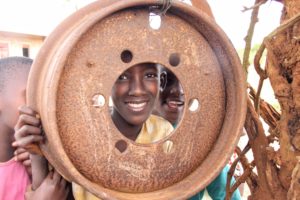
Tucked in the hills of Lyantonde District between rows of beans and corn and rummaging cows is the Building Tomorrow Primary School of Mutyekula.
What was once a transitory space trodden by the hooves of cattle passing through looking for forage is now a hub of the community—a place of permanence feeding the young minds of tomorrow. A new shop has sprung up on the road next to the school, providing snacks and other items for students and their parents. The community has mobilized and constructed teachers’ quarters on the edge of the grounds. The crumbling church is in the process of being renovated.
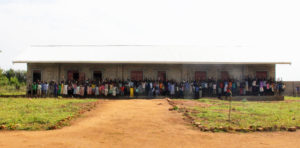
The students of the Building Tomorrow Primary School of Mutyekula
It is a new beginning for the community of Mutyekula.
The school hums with the voices of pupils buzzing with excitement in their classrooms, and the dusty soil is so marked by the scuffles of hundreds of tiny feet that unless you asked, you might always assume that it had been this way.
But it has not always been this way. Prior to the construction of the Building Tomorrow Primary School of Mutyekula, there was no primary school at which children of Mutyekula could learn. In fact, there was no primary school at which children in the entire parish could learn.
The next closest primary school is 15 kilometers away in the neighboring parish, but it might as well be light-years away. On the sloping land marked by erosion, the roads can become impassable once the rains start. And the distance is so far that, at its best, the journey is expensive, and at its worst, tiresome and even dangerous.
That’s why the construction of the Building Tomorrow Primary School of Mutyekula has meant so much for the community. The distance factor has been reduced, and with it, many of the problems associated with it.
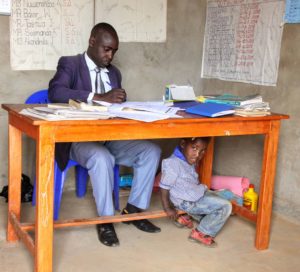
Head teacher Wilson Nuwabine organizes enrollment forms while his son, Emmanuel, plays at his feet.
For one, now that the distance is not so burdensome, head teacher Wilson Nuwabine says that dropouts have reduced, and pupils are joining the school at an early age. Children are finally getting an early start, including his own son, Emmanuel, who has just joined the nursery section at the school.
In addition to this, because there is a school in the community, attendance is more regular as children do not have to stay at home when it rains due to fear of flooding roads. Parents are also able to hold onto more money now that they no longer have to spend on transport to send their kids to school elsewhere, and the school has even created jobs for the community. This economic impact, Wilson says, is important because almost all of the parents of the children at the school are farm hands—migratory farmers without their own land who lend their labor to anyone needing assistance—and are thus deeply impoverished.
But perhaps most moving is the improved safety that the school has afforded the community. “Crimes have reduced,” explains Wilson. “The children used to leave early in the morning and leave late at night. There were girls who were raped.” This is no longer the case.
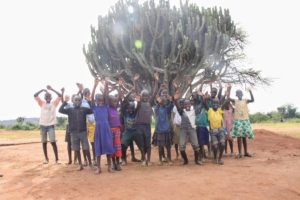
Children play under the African Cactus Tree after school. The community used to hold classes here for first and second graders.
Moreover, because the community has abandoned the temporary and haphazard structures that it was using before, the children are less at risk for injury and the stresses left in their wake. The community used to try and organize classes from first to fourth grade using what resources it had at its disposal, for example. First and second graders used to study underneath the African Cactus Tree, exposing them to the harsh sun and sometimes rain throughout different points of the day. Third graders used to study out of a building that was so poorly constructed that it used to routinely collapse and risk the life of its occupants. Fourth graders, who perhaps had the best situation, studied out of a nearby church, but struggled with a lack of other key infrastructure like desks and a chalk board. Fifth, sixth, and seventh graders simply could not be accommodated.
Molly Nyamwiza is one of the sixth graders who now studies at the Building Tomorrow Primary School of Mutyekula, along with her three sisters and brother. A quick-to-smile, energetic 14-year old who loves playing netball, Molly says that she loves coming to school to study science because she wants to be a nurse..
Her classmate, 14-year-old Aaron Ampurire, has similar aspirations, and dreams of becoming a doctor to treat sick people in his community. He says malaria and typhoid are a big problem in his village, and his family was touched by this last year when his little 3-year-old brother Joshua fell ill with typhoid. Without a doctor in the community, Aaron says they had to travel a long way to the hospital to treat him, and it was expensive.
The dreams of these small children are big, but they now have the opportunity to grow into them through access to quality primary education at the Building Tomorrow Primary School of Mutyekula. It is a blessing that, head teacher Wilson says, the community is so thankful for.
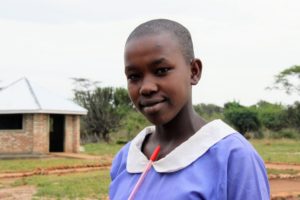
Sixth grader Molly Nyamwiza dreams of becoming a nurse.
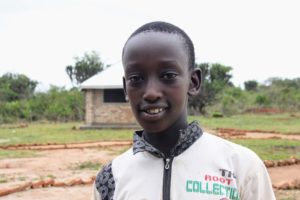
Sixth grader Aaron Ampurire hopes to become a doctor to treat sick people in his community.

Follow Us on Social Media